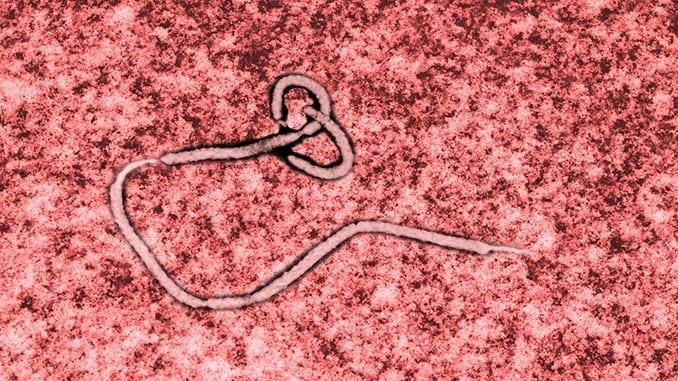 A new partnership between Collaborations Pharmaceuticals Inc. (CPI) and the Texas Biomedical Research Institute aims to re-purpose an antimalarial for use against the Ebola virus.
A new partnership between Collaborations Pharmaceuticals Inc. (CPI) and the Texas Biomedical Research Institute aims to re-purpose an antimalarial for use against the Ebola virus.
The effort is backed by a $596,533 contract recently awarded by the National Center for Advancing Translational Sciences (NCATS).
Data from a published large scale high throughput screen performed by SRI International and Texas Biomedical Research Institute was used to create machine learning models that identified 3 compounds active against the virus in vitro. This earlier work had suggested that antimalarial compounds, as well as other classes of approved drugs could be of interest for repurposing.
“We used Bayesian machine learning models based on the earlier published dataset to screen a library of more than 2000 drugs and drug-like molecules, which then lead to the discovery that of the 3 compounds identified, a relatively new antimalarial called pyronaridine, approved in Europe had promising activity in vitro and could be worthy of testing in vivo against the Ebola virus” said Sean Ekins, CEO CPI.
“My lab has screened thousands of compounds against Ebola virus,” said Dr. Robert Davey, Interim Chair of Texas Biomed’s Department of Virology and Immunology. “This particular compound, pyronaridine, is promising because it is already an approved drug in Europe, has been used in thousands of patients and may have favorable molecular properties that could speed up its transition to clinical testing. We do not currently know the target of the three compounds and there is still considerable research needed.”
Dr. Davey is interested in understanding how viruses like Ebola virus penetrate the cell membrane and establish infection. In addition, Dr. Davey’s laboratory has developed safe, efficient, high-throughput screening techniques for Ebola virus and performs contract work on testing drugs and compounds against Ebola virus infection in the biosafety level-4 maximum containment laboratory. This work has resulted in exciting findings towards potential drug candidates to combat Ebola virus.
“This collaboration involves Texas Biomedical Research Institute, Stanford Research International and Rutgers University, and we are very grateful to NCATS for funding so we can illustrate how computational approaches can be used to repurpose drugs already approved for other uses and instead use for neglected diseases” said Dr. Ekins.

